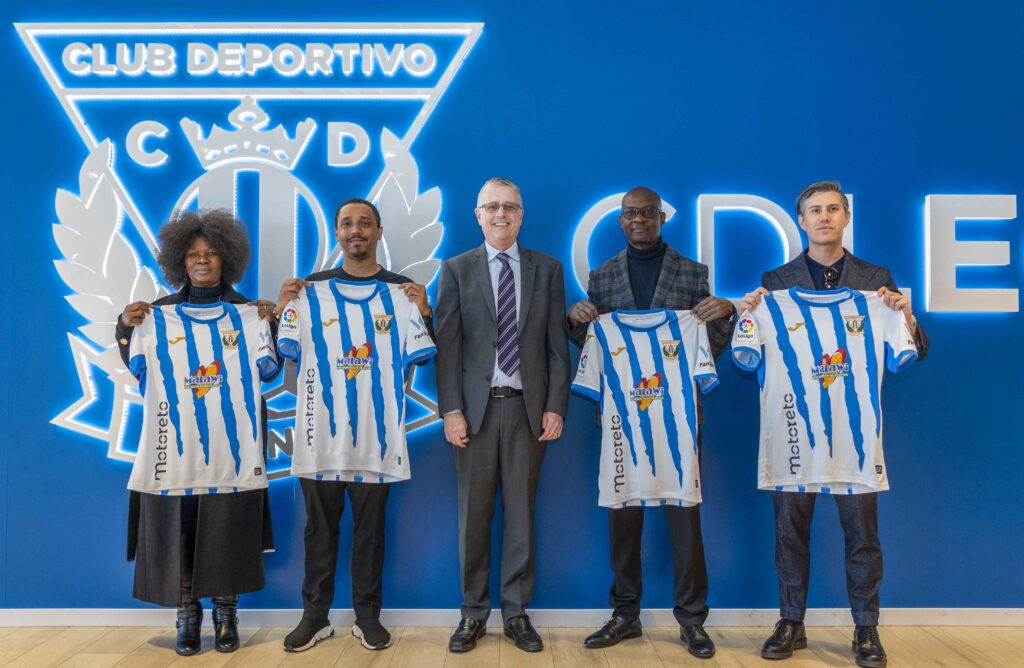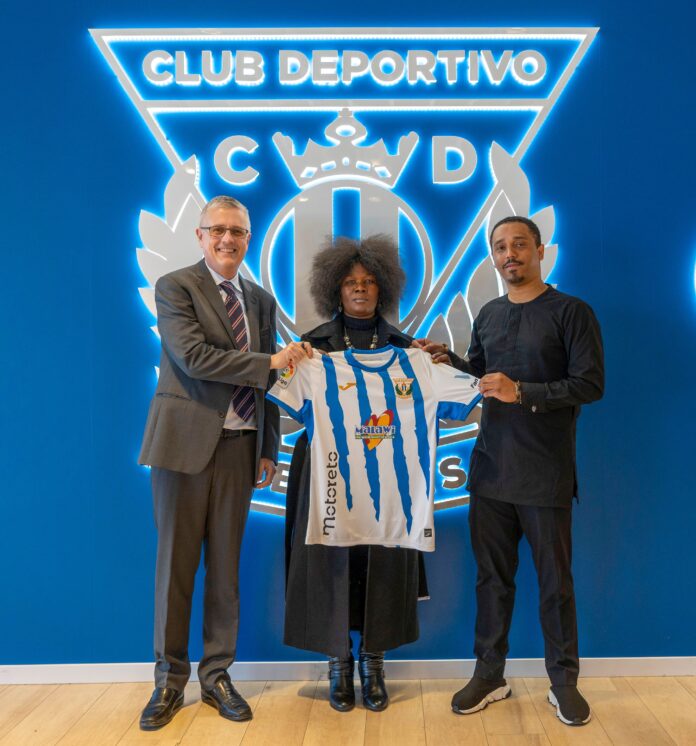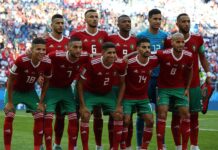From cultivating their sporting muscle to reaping the full benefits of extended branding for tourism and business, more African countries are partnering with European football clubs. Malawi is the latest to sign a partnership deal.
bird story agency
More African countries are seeking to leverage their tourism potential while simultaneously developing sports by partnering with football clubs across Europe.
Malawi is the latest country to strike deal with a European club, signing with Spanish Segunda División club, CD Leganes, to make the country a rotating main sponsor for the club.
Under the partnership, officially launched on January 22 before a match against Levante UD at the Butarque Municipal Stadium, “Malawi, the Warm Heart of Africa” will appear on the front of the first team’s kits during matches and in media backdrops.
According to CD Leganes president, Jeff Luhnow, “the club will reach out into Africa to develop talent and relationships and to continue to internationalise the brand.”
“We are looking forward to spending time in Malawi looking for and developing young athletes that can someday play in the first team here in Leganes,” he added.
Beyond the pitch, Luhnow indicated the partnership also seeks to facilitate tourist flow into Malawi.
Agnes Patemba, the Deputy High Commissioner to the United Kingdom, who was present during the launch of the partnership, stressed Malawi’s willingness – and support from Malawi to develop its sporting ecosystem.
“The President’s offering shows there is political will to develop sports in the country,” she said.
Despite Malawi having plenty of talent, she explained, insufficient resources and a lack of exposure – especially to international sporting platforms – have limited the realization of the sector’s potential.
“Our infrastructure is also poor…it is in the plan that they will develop a sports complex which can train young talents,” she noted.
The deal in force is a consequence of an earlier meeting between CD Leganes’ Jeff Luhnow, Rainbow Sports’ Founder and CEO Kingsley Pungong and Malawi’s President Lazarus Chakwera.

Beyond the agreement opening up opportunities and talent in football to Malawian youth, it will upscale Malawi’s brand as an ample tourism destination.
Chauncy Simwaka, the Principal Secretary for Tourism, Culture and Wildlife, in a statement explained that the partnership allows Malawi “to continue with its strategy of expanding brand awareness.”
The World Travel and Tourism Council (WTTC) in a 2022 report projects that the tourism sector in Malawi generates $512.8 million annually, a figure the southern African country – famous for the crystal waters and underwater scenery of its unique Rift Valley lake, Lake Malawi – seeks to grow under the new deal.
Apart from Malawi, Rwanda, through the Rwanda Development Board in 2018 struck a relatively similar deal with Arsenal FC to promote Rwanda as a tourist destination under the “Visit Rwanda” campaign.
In 2021, Arsenal and the East African country further announced the signing of a £10 million-per-year sleeve sponsorship contract lasting four years.
After the 2018 deal, the Rwanda Development Board announced its revenue from tourism “increased by 17 per cent and tourists from Europe increased by 22 per cent.”
A similar agreement between the Rwanda Development Board and 2021-2022 French Ligue 1 title bearers, Paris Saint-Germain, PSG, has been in force since 2019.
Courtesy of the two partnerships, Rwanda has gained significantly.
PSG Academy Rwanda in the Huye district in the Southern province, a flagship project borne of the partnership with the French side, offers free football training services to young Rwandan players.
Private sector companies from Africa with overseas client bases are also recognising the benefits of sponsoring overseas clubs.
Mukuru, a Kenyan-based multinational money transfer service, is sponsoring Crystal Place, while South Africa-based betting agency, Hollywood Bets, is sponsoring Brentford FC.
South Africa has a history of effectively using sports to boost tourism, by hosting major international events such as the 2010 FIFA World Cup.
After the World Cup 2010, South Africa recorded around a 7% monthly increase in international tourists. The sector contributed more than $5 billion in revenue over the year.
Sports tourism is a vital factor in South Africa’s Horizon 2025 strategy, a plan that seeks to leverage on the sports sector to realise development.
Nigerian telecommunications multinational, Globacom partnered with Manchester United for close to 10 years, promoting the club in the West Africa region.
According to Musa Frimpong, a researcher and international development expert, the partnerships allow African countries to pursue nation branding as a core development strategy while backing up the strategy with the right investment.
“Like corporates, countries also face intense competition in the areas of education, tourism, technology and trade…nation branding can be used to a greater effect,” he notes.
Musa believes that leveraging the natural competition that exists among countries – sports included – can help them develop.
“The wholesale and business as usual development approach will not serve the interest of African countries in the new era…system change, structural reforms and new strategies must be adopted,” he outlined.
/bird story agency



